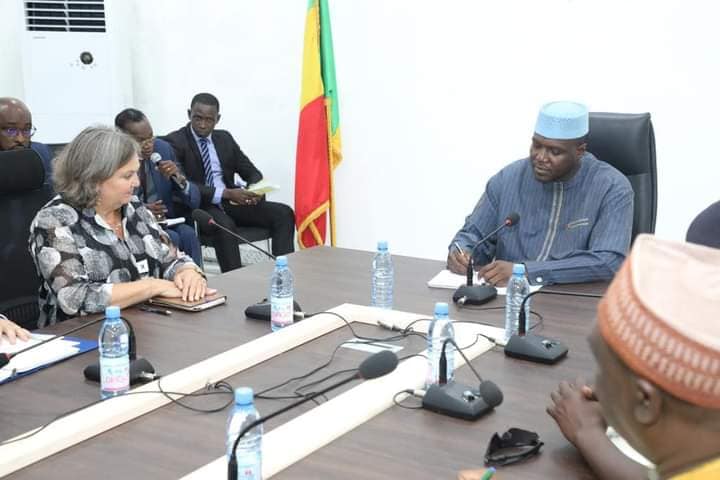The lifespan of Mali’s transitional government will end in March 2024 if the military authorities keep their promise to hold elections before then.
The United States is closely monitoring the situation in the Sahel, a region plagued by years of insecurity and political instability.
Upon returning from a visit between October 16 and 20, 2022 to Mauritania, Mali, Niger and Burkina Faso, the US Under Secretary of State for Political Affairs, Victoria Nuland, gave her impressions on the progress of the transition in Mali.
Since August 2020, the country has been ruled by a military junta which, after a six-month embargo by the Economic Community of West African States (ECOWAS) in 2021, following a second coup against then transition president Bah N’dao, promises a return to constitutional rule in less than twenty months.
“We met with electoral officials in Mali. We also met with civil society activists on this front, and we had very intense conversations with the Prime Minister and the government. I will repeat what I said in Mali, that so far, as far as we have been able to ascertain, the Malian interim government is keeping its commitment to the agreed timetable for elections in 2024” said the US diplomat, interviewed virtually by journalists from African and foreign media.
ECOWAS lifted suffocating sanctions on Mali last July after obtaining a commitment from Colonel Assimi Goïta, the head of the military junta, to hold presidential and legislative elections in February 2024.
These elections are supposed to end the transition period by March 2024.
But doubts remain about their inclusiveness, given that much of Mali’s territory is occupied by jihadist groups and there are large numbers of displaced people fleeing terrorist violence.
According to Victoria Nuland, they “have increased by 30% in the last six months”.
US involvement in coups?
“We have also expressed our concern about the need to ensure that the elections are fully inclusive. This is also linked to security throughout the country, but also to the fact that there are now many displaced people. They are going to have to be registered and so on. So, there are a lot of challenges, but at least the civilians responsible for the election seem to be keeping the preparations on track,” she said.
The US undersecretary was also asked about a view that is beginning to spread on the continent about some West African military officers who, after being trained by the US, are carrying out coups in their respective countries.
Mali’s Assimi Goïta, Guinea strongman Mamady Doumbouya or the Burkinabe junta head Paul-Henri Sadaogo Damiba have taken part at least once in the Flintlock programme, established since 2005 by the US military command and which is the largest annual special operations exercise of the world’s leading power in Africa.
It is interesting that some time after this training, these officers went on to overthrow the leaders in their respective countries and install military juntas that are often slow to present a reasonable timetable for a return to civilian authority.
Ms Nuland said that this coincidence was “rather tendentious,” pointing out that “some of the people involved in these coups have received American training, but it is far from all of them”.
She said those raising such questions should be asking these successful coup plotters why they are overthrowing their governments.
Ms. Nuland added: “Our message in all cases was that the citizens of these countries deserve to see democracy restored and that, particularly in Mali and Burkina Faso, we expect these two interim governments to live up to their commitments to ensure fully participatory elections by 2024, as they have pledged to do, and we provide strong support for that”.
The US Under Secretary for Political Affairs has visited Africa three times since her appointment 18 months ago.
ODL/ac/lb/as/APA


